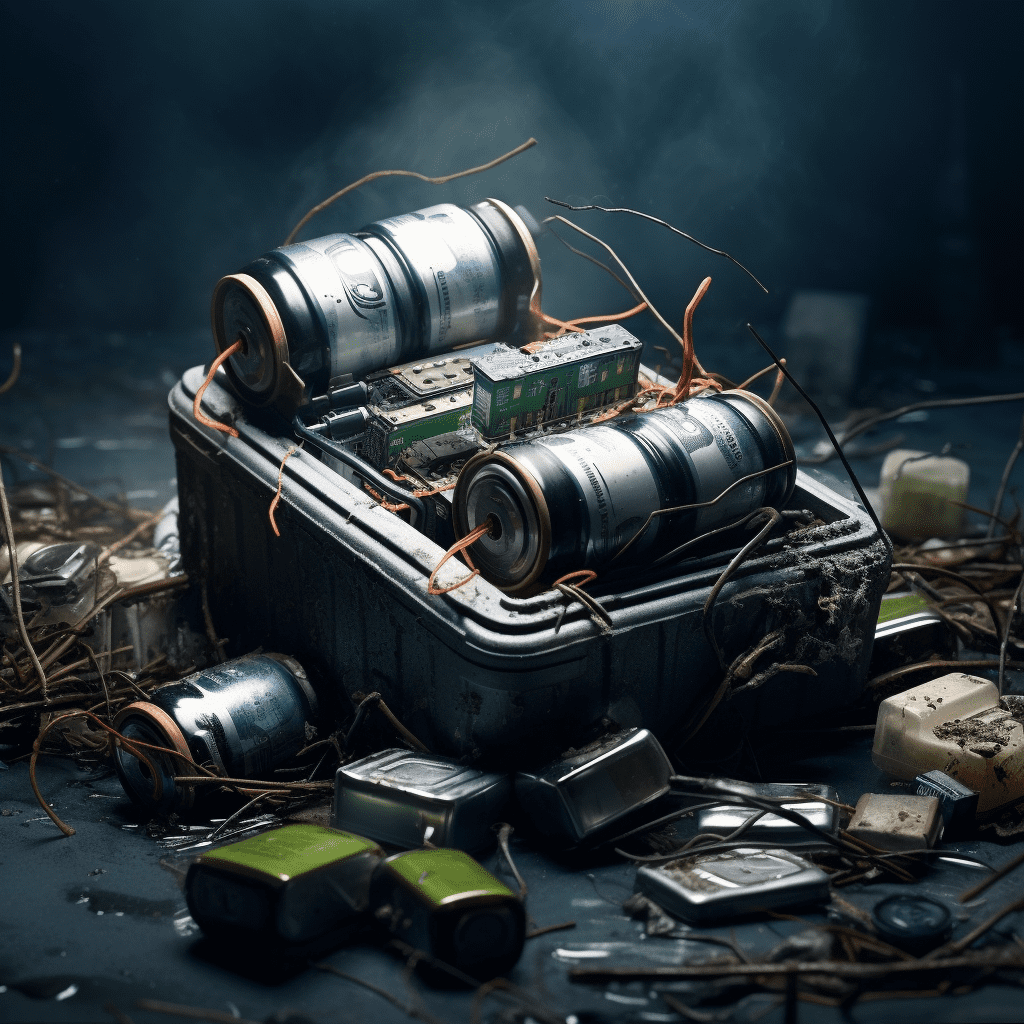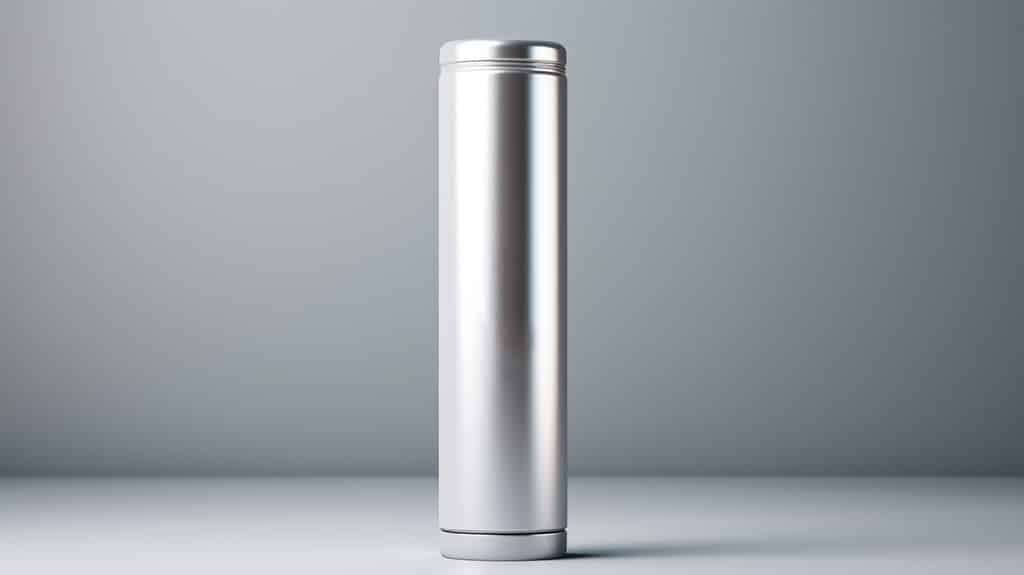Welcome to our blog post on the fascinating afterlife of lithium batteries! Have you ever wondered what happens to these fully charged devices at the end of their life cycle? Well, you’re in for a treat, because we’re about to dive into this exciting topic.
Lithium batteries have become an integral part of our modern lives, powering everything from smartphones and laptops to electric cars. But what exactly happens when these energy heroes can’t recharge? Join us as we uncover the secrets behind lithium battery disposal, second-use opportunities, recycling options, and exciting future prospects. Fasten your seat belts and let’s explore this exciting journey together!

Disposal of Lithium Batteries
When handling lithium batteries, careful handling is essential. These mighty little sources of energy cannot be thrown in the trash! Due to its chemical composition, it poses a risk if not handled properly.
First and foremost, it is important to check local regulations regarding battery disposal. Many regions have specific guidelines for recycling these batteries. In some cases, you may need to take them to a designated drop point or recycling center.
Why is this necessary? Well, when lithium batteries end up in landfills, they can leak harmful chemicals into the soil and water supply. This poses a threat not only to our environment but also to human health. By handling them responsibly, we can minimize these risks and protect our planet for future generations.
Remember: taking the extra step for proper disposal will ensure that these small power stations don’t become big problems!
A second life for lithium batteries
Did you know that even after lithium batteries are depleted, they can still find a second life? This is real! While these batteries may no longer have enough charge to run your device, they can still be useful in other ways.
One way lithium batteries can get a second life is by repurposing them. For example, old laptop batteries can be used to power small electronics projects or DIY solar power systems. With a little creativity and some basic electronics knowledge, you can breathe new life into these seemingly dead batteries.
Another option for extending the life of lithium batteries is through a battery replacement program. You can replace it with a fully charged battery at designated locations instead of throwing away the old battery when it dies. Not only does this reduce waste, it also allows for more efficient use of battery resources.
Additionally, the use of retired electric vehicle (EV) batteries is being investigated as an energy storage solution. These large-scale applications involve using the remaining capacity of electric vehicle batteries to store renewable energy from sources such as solar and wind.
The possibilities for finding a second life for lithium batteries are endless. So the next time your battery dies, consider exploring these options before you toss it in the trash. By doing this, you’re not only reducing waste, you’re also contributing to creating a more sustainable future, and even our old lithium batteries can continue to make a difference!
Lithium battery recycling
When it comes to end-of-life lithium batteries, recycling plays a vital role in reducing environmental impact. Recycling these batteries helps recover valuable materials and prevents the release of harmful substances into the environment.
In the first stage of battery recycling, collection centers collect used lithium batteries from various sources such as consumer electronics or electric vehicles. These batteries are then classified according to their chemical composition and condition.
Next, the battery goes through a series of processes to extract valuable materials such as lithium, cobalt, nickel and copper. These recovered materials can be reused to produce new batteries, or even other industries such as electronics or automobiles.
By recycling lithium batteries, we not only conserve natural resources, but also minimize pollution caused by improper disposal methods. This is an important step in building a sustainable future, meeting our energy needs without harming the planet.
Remember, when your lithium batteries die, don’t just throw them away – recycle them! Let us together contribute to building a cleaner and greener world for future generations.
The future of lithium batteries
As technology continues to advance at a rapid pace, the need for more efficient and sustainable energy continues to grow. This is where lithium batteries come into play. With their high energy density and long-lasting performance, lithium batteries have become the preferred choice for powering everything from smartphones to electric vehicles.
But what does the future hold for these mighty little cells? Scientists and engineers are constantly pushing the boundaries of battery technology. They are working on developing more advanced lithium-ion batteries that can store more energy, charge faster and last longer.
In addition to improving performance, researchers are exploring ways to make lithium batteries safer and more environmentally friendly. This includes finding alternative materials that could replace some of the rare or toxic elements currently found in these batteries.
Through continuous research and development work, it is clear that there is still a lot of room for innovation in the field of lithium batteries. So don’t be surprised if we see even more impressive advances in this field in the coming years!
in conclusion
In this article, we explore the afterlife of lithium batteries and what happens when they die. Clearly, proper disposal and recycling of these batteries is critical to environmental sustainability.
When disposing, lithium batteries must be handled with care due to their potential hazards. Many countries have specific regulations for the safe disposal of these batteries, including collection centers or designated recycling points. By following these guidelines, we minimize the risk of environmental contamination.
However, simply throwing away used lithium batteries shouldn’t be our only option. Even if these energy storage devices can no longer efficiently power our devices, they still have value. By repurposing them, for example by repurposing them for lower demand applications such as backup power systems or grid stabilization projects, we can expand their use before recycling.
Recycling lithium batteries plays an important role in reducing resource consumption and minimizing environmental impact. The process involves extracting valuable materials such as lithium, cobalt, nickel and other metals from used batteries so they can be reused in new battery manufacturing or in other industries.
As technology advances and the global demand for sustainable energy solutions continues to grow rapidly, researchers are exploring innovative ways to improve battery performance while more effectively addressing end-of-life challenges. From advances in battery chemistry to emerging recycling technologies using hydrometallurgical processes or environmentally friendly solvents – the future is bright.
To ensure a sustainable future where clean energy technologies thrive alongside responsible waste management practices, collaboration between governments, manufacturers, consumers and recyclers is critical. By investing in research programs dedicated to improving battery life and further increasing recycling rates, we are paving the way for a circular economy that saves resources, not wastes them.
So next time you find yourself with a dead lithium battery in your hand and wonder what happened next – remember, its journey doesn’t end there!



